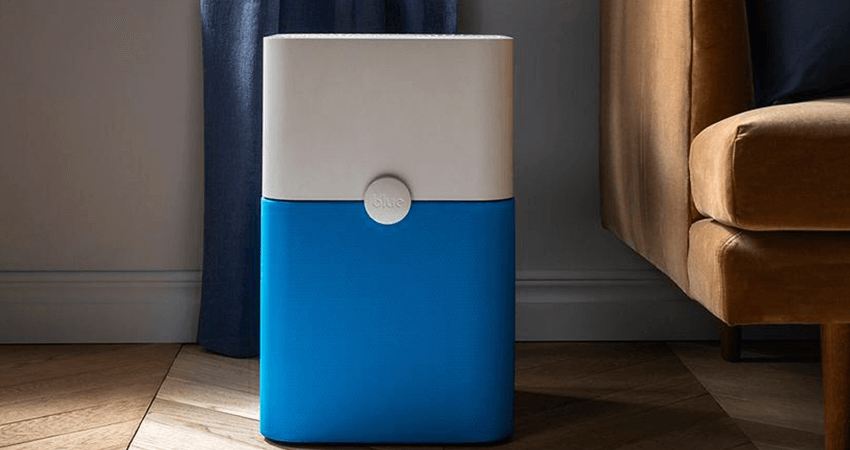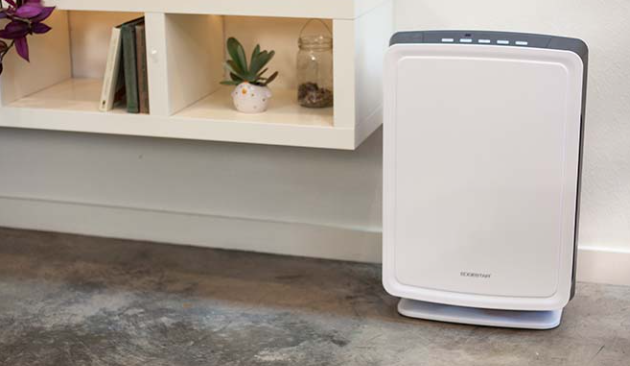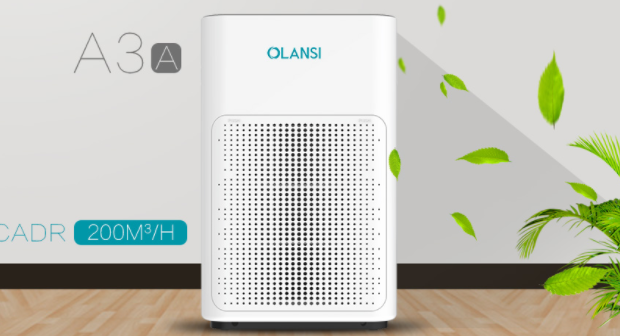The atmosphere inside your home might have more pollution than the outside air because of so many pollutants inside. According to the EPA, the pollution concentration in the indoor air can be double, even five times higher than outdoors. Smoke from the kitchen, smoking cigars, trapped mold in a narrow space, pet dander, ragweed, and so many other sources are enough to pollute it.
A good air purifier can keep the air inside pollution-free, and you can keep yourself free from Airborne diseases. However, choosing the right air purifier can be a daunting job, especially if you’re new to this. I will help you on how to choose an air purifier and get you through the things you must know.
How Long Does It Take An Air Purifier To Clean A Room?
When you’re getting an air purifier, this obvious question comes forward, How long does it take an air purifier to clean a room? Well, the time depends on the air quality in your room, how much filtering power your purifier has, and the quality of its filtration mechanism.
Depending on these matters, an air purifier will take anywhere from 30 minutes to 2 hours to purify a room from airborne pollutants. In some cases, such as if you’re an asthma patient and allergic to pollutants, the purifier might clean your room 2 to 5 times an hour. This is why you must know why use an air purifier and how often you should use one.
Types Of Air Purifier
Depending on the most prominent pollutant type of your room, you can go for different types of air purifiers. Here are some of the most popular air purifier types you can find in the current market:
- HEPA air purifiers: HEPA or the high-efficiency particulate absorbing technology can filter out up to 99.97% of the airborne particles larger than the diameter of 0.2 microns.
- UV rays air purifiers: Ultraviolet purifiers make UV rays that can kill dangerous germs, bacteria, and other harmful pollutants in the air.
- Activated carbon purifiers: This one especially works on bad odor, smoke, and fumes, as well as the dust particles from the air, they are the best air purifier for smells.
- Negative ionic purifiers: These air purifiers produce negative ions into the air and make positive energy in the air, which is capable of keeping you healthy, both mentally and physically.
- Electrostatic air purifiers: These purifiers suck in the polluted air with dust and harmful particles and trap them with an electrostatic filter.
How To Choose An Air Purifier?
Choosing the right air purifier depends on the air pollutant types you have in your atmosphere and how efficient you want your purifier to be. So, here is how to choose an air purifier, including the features and hardware that you must look:
HEPA or Electrostatic filter:
The very first thing you must consider getting though is the filter type your air purifier offers for filtering pollutants. You may get other filtering systems like UV, Negative ion, and others in the same purifier, but not the HEPA and the Electrostatic. However, HEPA gives you the capability to take out the filter and replace it with a new one once it’s out of order. But an electrostatic one won’t give you that chance of keeping the filter going for years by replacing the filter. However, electrostatic filters are more durable compared to HEPA. The first pass filtering efficiency rate for electrostatics is 60-80%, where it’s 87-99% for the HEPA.
Have activated Carbon filter:
Activated carbon filters keep the smoke, bad smell, gasses, or odor from the air and keeps your room fresh and clean. So, an activated carbon filter in your air purifier is must-have hardware if you want to have the maximum safety. The rule of thumb here is, the more activated carbon you have in the filter, the more pollutant it will be able to grab. Smokes from wildfire, cigar, and kitchen are the most disturbing sources for home toxification. Make sure you have a good activated carbon filter in your air purifier, even in a small amount.
Air-Quality automotive sensors:
This is a feature in the modern air purifiers that everyone should have for the utmost care for the indoor air quality. Most of the air purifiers that offer quality first will have automatic air-quality sensors that can give you real-time air quality updates. Another great thing this sensor does is that it can keep the ambient air fresh by turning the filter on or off. Whenever the sensor detects smoke or a bad odor, it will increase the speed of the filter fan to accelerate the process. If your filter has a monitor to show the result from the sensor, it will keep you updated with the air quality you have in your room as well.
Adjustable filter fan:
A filter fan inside the air purifier is the driving force that sucks in the polluted air into the filters and helps them to purify the air. So, the power of the fan has a significant role in the process for sure. If the fan of your filter is speed-adjustable, you can save energy and accelerate the speed when needed. The best thing about having adjustability on your filter fan is that you can put it in the lowest setting and fall asleep. It will keep purifying the air around you and keep your lungs getting pure and fresh air all night.
CADR:
CADR or the Clean Air Delivery Rate is an international certification system for air purifiers. It calculates the effectiveness of the purifier, how efficient it is when it comes to fast purification. If your purifier comes with CADR certification, you can have an idea of how efficient it will be at filtration. The higher the certification number is, the faster and efficient it will be at its job. So, make sure you check that out before buying.
Room size:
The room size your purifier can cover has a big role to play in the section. Make sure you have measured your room before going for an air purifier. When going through the specifications, look for the room coverage; it has such as 100-400 square feet or so. Look if the specification is offering more than the space you have in your room. Try to get it more than you need in your room and see if there is any certification on that. Certification from the AHAM (Association Of Home Appliance Manufacturers) is a reliable one to determine that.
Hands-Free controller:
Try to get an air purifier that offers a handsfree controlling system with the machine, such as a remote controller or Wifi connectivity. It will help you control the device more efficiently without having to walk to the device and manually control it. Some devices even offer voice control with Amazon Alexa or Google Home. So, be sure to check them out if you need that.
Noise level:
The noise level of the purifier comes with a noise level unit, DB, make sure the number goes as low as possible. It’s important because when you’re sleeping, and the purifier is turned on, it may disturb your sleep if the noise is too much. If you want a reference, you can go with a purifier that offers a noise level of around 25-20 DB. That’s at its lowest levels, and if it has a night mode, that would be an added benefit for low noise.
Benefits Of An Air Purifier
There are tons of benefits of air purifiers I can put in here; however, the essential benefits of an air purifier are:
- It will keep your lungs healthy by eliminating allergens from the air you’re inhaling in your room. It’s severely beneficial, especially if you have asthma or lung problem.
- If you have a pet, it’s highly likely that you’re irritated with the pet dander or pee smell. An air purifier can filter them out effectively and keep you on the safer side.
- Tobacco and Cigarette Smoke is the reason for lung cancer, other diseases, keeping the air clean from the smoke can keep you and your family safe.
- Air purifiers keep the Radon Gas and other airborne pollutant particles out of your nose and keep you safe from cancer and other diseases.
If you’re interested to know more about them, visit this in-depth article on the Benefits of an air purifier.
Frequently Asked Questions
Here are the most asked questions about air purifiers that you might have an interest in:
Can air purifiers make you sick?
Can air purifiers remove dust?
Should i sleep with the air purifier on?
Final Thought
Clean and fresh air is severely important when it comes to maintaining mental and physical wellness. Choosing the right device will help you get the most out of your investment in your and your family’s health. Getting a wrong purifier will give you nothing but a chance to regrate later. Don’t forget to look for the certifications in the purifier to get an idea about the reliability. Now, as you know how to choose an air purifier, best of luck for your next shopping! Breath is fresh!




